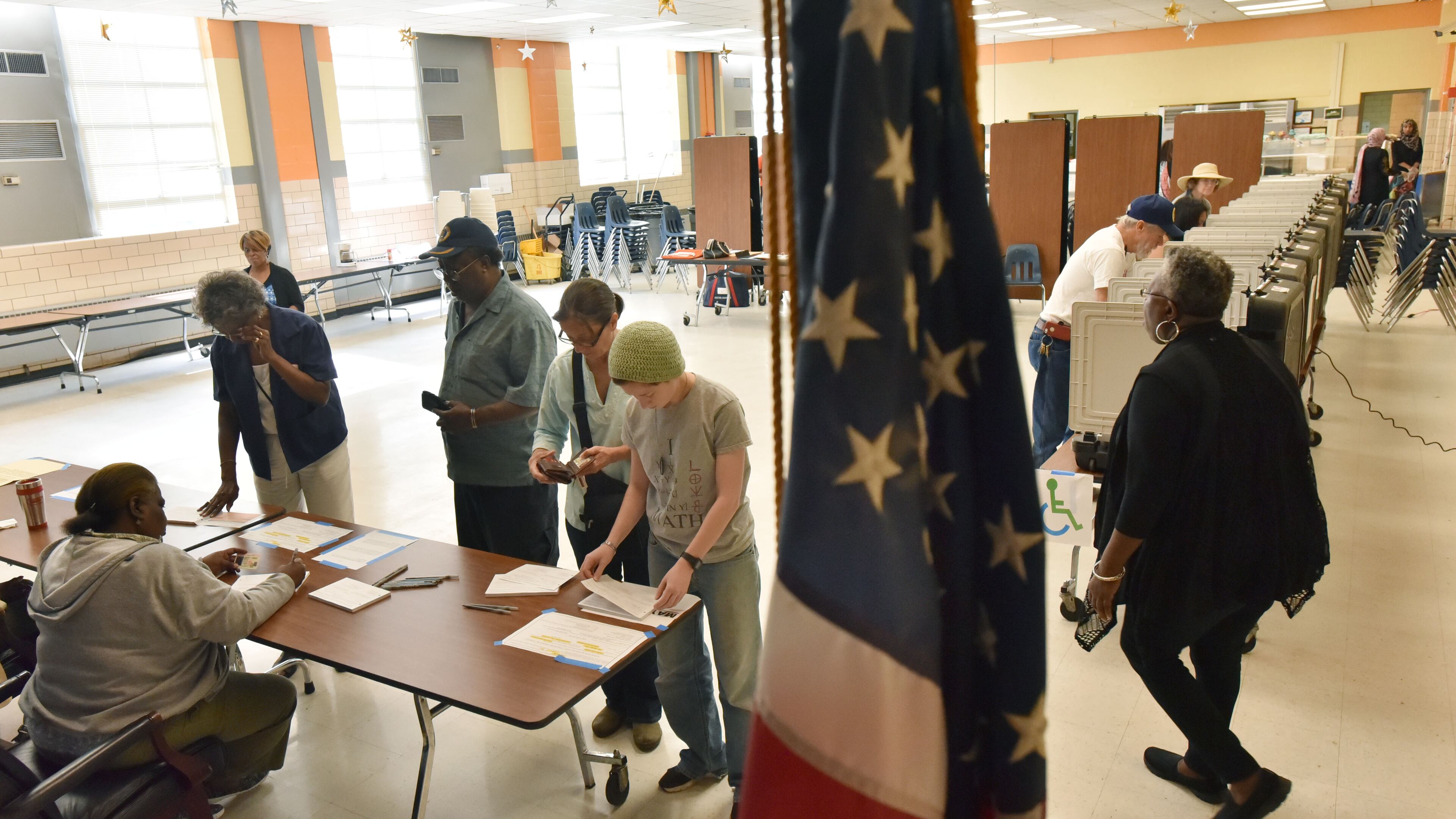Opinion: Today's elections more about ethics, taxes than R's and D's

It's Election Day , not that most voters will notice. We can expect poor turnout to elect folks to offices that, while not always staples of headlines or dinner-party conversations, often have the largest direct effect on our everyday lives.
Locally, we can expect a runoff at least for Atlanta's mayor , who first and foremost will be called on to set a new tone when it comes to ethics and corruption at City Hall. The elections for its City Council president and some council seats might also remain unresolved after today's balloting. Maybe some school board seats as well. There are mayoral and council elections in other metro Atlanta counties and an important commission chairman's race in Fulton when it comes to getting a handle on property taxes. Not to mention a handful of special elections across Georgia for seats both the state House and Senate.
Looking beyond Georgia, New Jersey and Virginia are the two states that hold elections between presidential elections and the midterms. A Democrat seems all but certain to succeed Chris Christie, whose fall from "he coulda beat Romney" in 2012 to complete ignominy today has been amazing to behold from afar. Virginia's gubernatorial race looks like more of a toss-up, with Republican Ed Gillespie narrowing his deficit in the polls lately against Democrat Ralph Northam.
The temptation will be to interpret the results as instructive about the two-party lens through which we view everything these days. Democrats in Georgia, badly needing a win going into 2018 after the Democratic debacle that was the 6th District race earlier this year, hope to pull off one of a handful of truly contested state legislative races . The Gillespie-Northam race in Virginia will likewise be pored over by tea-leaf readers (although election analyst Dave Wasserman makes a good case that Virginia's legislative races are a better indicator of the general mood toward the two major parties).
But remember how this post began: low turnout. Add to that the large number of people running in what amount to jungle primaries in the special elections for Georgia's legislative races, and its mostly nonpartisan local races, and one can imagine a number of scenarios that wouldn't tell us much about R's vs. D's going forward.
Consider another 6th District race: the Georgia Senate District 6 election. That one is in the spotlight because then-incumbent Hunter Hill (who resigned this summer to focus on his race for governor) barely beat a little-known Democrat last fall in what should be a relatively Republican-leaning district. But with five Republicans and three Democrats running for the seat now -- none of whom appears to have a clear grip on the race, even among their own party's voters -- pretty much anything could happen. If two Republicans make the runoff, or one of them eventually wins the seat, the GOP shouldn't feel overly confident about that race, or others, going into 2018. Keep in mind that there are more contested races going on in the (larger) Fulton part of the district, which leans Republican, than in the Cobb side , which tilts more Democratic. One would expect heavier Republican turnout both now and in the runoff, when a runoff for Atlanta mayor will also be taking place. That would tend to bode slightly better for the Democrats if one of them was able to win, but next year will still an uphill battle for even a Democratic incumbent because of sheer numbers in the district (and the lack of Donald Trump's name on the ballot to drive intensity on the Democratic side).
All of which is to say: These races are important in their own right. Clean government is worth having. So is an equitable and predictable property-tax system. Pay more attention to what these elections mean on their own than what they say -- or, more likely, don't say -- about other races yet to come.
